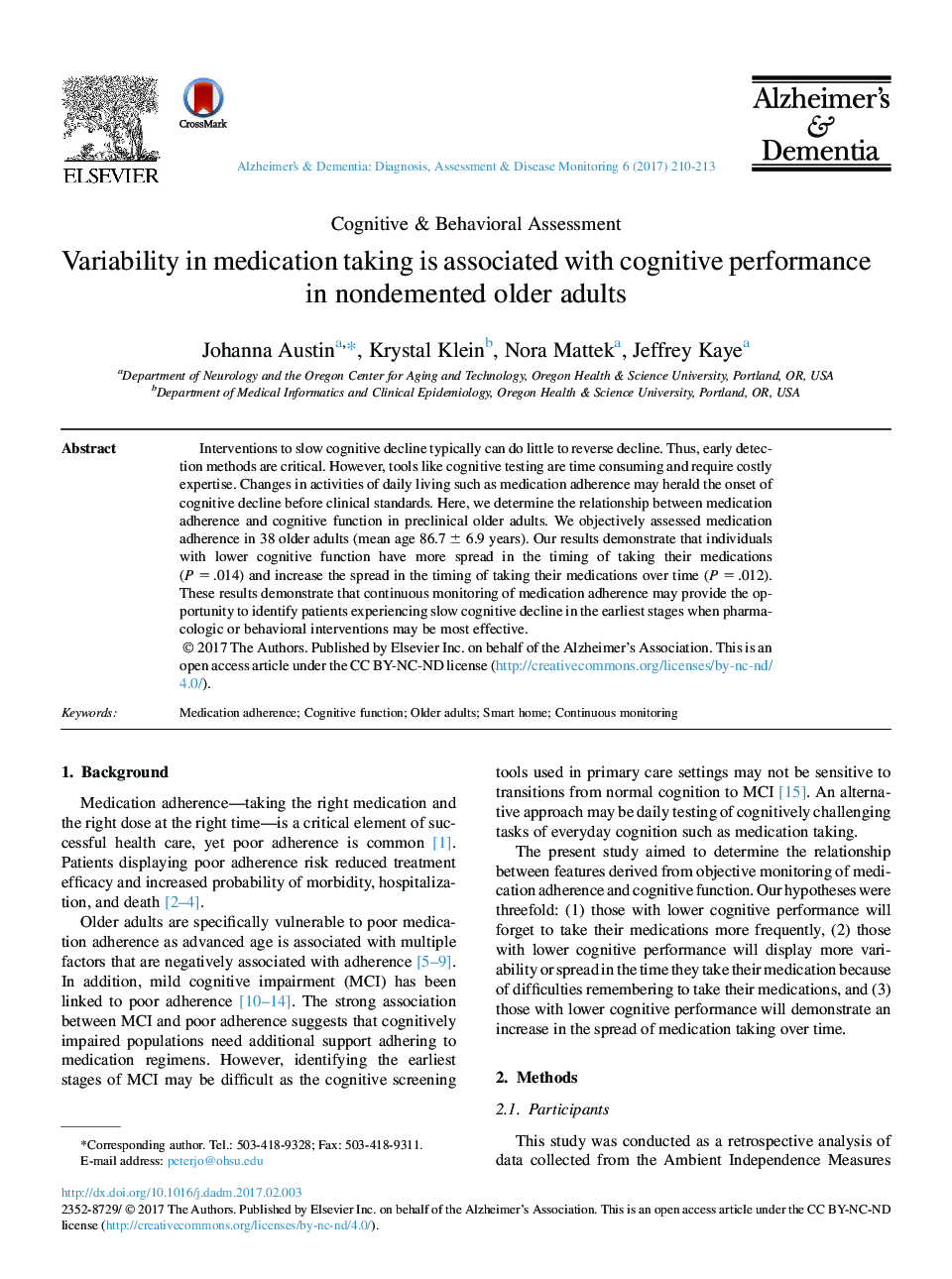| Article ID | Journal | Published Year | Pages | File Type |
|---|---|---|---|---|
| 8680407 | Alzheimer's & Dementia: Diagnosis, Assessment & Disease Monitoring | 2017 | 4 Pages |
Abstract
Interventions to slow cognitive decline typically can do little to reverse decline. Thus, early detection methods are critical. However, tools like cognitive testing are time consuming and require costly expertise. Changes in activities of daily living such as medication adherence may herald the onset of cognitive decline before clinical standards. Here, we determine the relationship between medication adherence and cognitive function in preclinical older adults. We objectively assessed medication adherence in 38 older adults (mean age 86.7 ± 6.9 years). Our results demonstrate that individuals with lower cognitive function have more spread in the timing of taking their medications (P = .014) and increase the spread in the timing of taking their medications over time (P = .012). These results demonstrate that continuous monitoring of medication adherence may provide the opportunity to identify patients experiencing slow cognitive decline in the earliest stages when pharmacologic or behavioral interventions may be most effective.
Related Topics
Life Sciences
Neuroscience
Neurology
Authors
Johanna Austin, Krystal Klein, Nora Mattek, Jeffrey Kaye,
